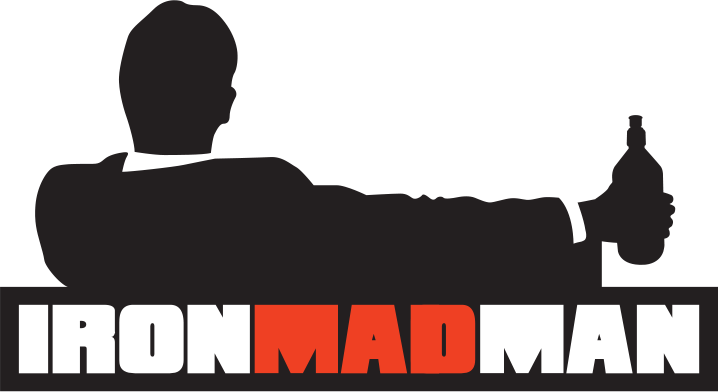When is it Time to Hire a Coach?
/A Good Wolf athlete triumphantly crossing the finish at his first Ironman.
I remember when I first became hooked on triathlon training. I mean, REALLY hooked. Like, lifestyle change hooked.
Relatively early in my tenure at my job several years ago, I met an Aussie and a Kiwi -- both Ironman finishers -- on a press trip Down Under. I promised them that the next time they heard from me, I'd be an Ironman too. Just like them! (Heck, just like seemingly everyone in Australia and New Zealand!)
Prior to that trip, I had completed a couple local triathlons and struggled to finish. I was "self-coached," without realizing that was even a term. I'd run, swim and bike a few times a week, with no real structure to my training. "Intervals" didn't yet exist for me, let alone key concepts like pacing or having a nutrition strategy. A "brick" workout probably would have resulted in a mason being very angry with me for property theft.
I muddled my way through some more races, and eventually realized nearly two years later that perhaps a coach could help me become a better triathlete. I needed to be saved from myself, and have enjoyed working with various triathlon coaches, nutritionists, massage therapists and strength training experts for several years now. I improved immeasurably faster as an athlete, and managed to learn a lot about life and business along the way.
Over the past season of coaching endurance sports athletes, and advising some of my athlete friends, I came to realize the self-help approach (or lack thereof) to triathlon training is still prevalent. As is the case on the path to wisdom, people sometimes don't know what they don't know. I was definitely one of those people.
So when does it make sense to hire a coach?
I'd start by asking someone to define their goals. What are they trying to achieve within the sport of triathlon? Can they accomplish those goals alone? How close to doing so is that person already, or how far do they have left to go? Would having a supportive community make a difference in achieving those goals?
Next, I'd recommend assessing commitment level to and passion for sport-specific improvement. How hungry is the athlete to achieve better results? How badly do you want it, in other words?
We then need to understand all the key factors swirling in that person's life. What outside demands do they have that compete with their time to train and race? (IMPORTANT NOTE: We're not trying to eliminate those constraints or add more pressure...we're simply understanding parameters to craft a holistic and realistic training approach.) We also need to honestly ask about potential vices such as alcohol or tobacco consumption as well as chronic injury or illness -- factors that can impede hard-earned progress. From there, we return to goals...are they realistic based on the rigors and risks of the aspiring athlete's core lifestyle?
Finally, we ask the athlete to look within and think about their self-discipline. Once a coach creates a well-thought, well-balanced coaching plan that augments the athlete's busy lifestyle, do they possess the ability to do the work to one day reap the race-day rewards? Because the secret to success in triathlon is CONSISTENCY in training. A coach can certainly help with motivation, but ultimately it's up to the athlete, to rise and grind, day in and day out.
If you're dedicated, passionate, patient, eager to learn and have time available to train, hiring a coach could be the best training investment you can possibly make.
One of the final questions I ask each athlete before we agree on a coaching relationship is: "What will you say 'no' to by hiring a coach to guide you?" I have found that this can give an athlete pause, as it forces them to really consider at a deeper level why they are seeking help to reach a presumably important goal. The answers have been powerful, too. Some decide they're giving up excessive beer consumption. Others decide they're giving up sleeping in.
Some make the leap and realize they're actually saying YES to an entirely new lifestyle, a new way to live and structure their lives.
These are all the first steps to becoming a Good Wolf.
If you're interested in making that leap, shoot me an email at ryan@goodwolfcoaching.com. I'd love to learn more.
NEXT POST: What are the keys to a successful coach-athlete relationship?

